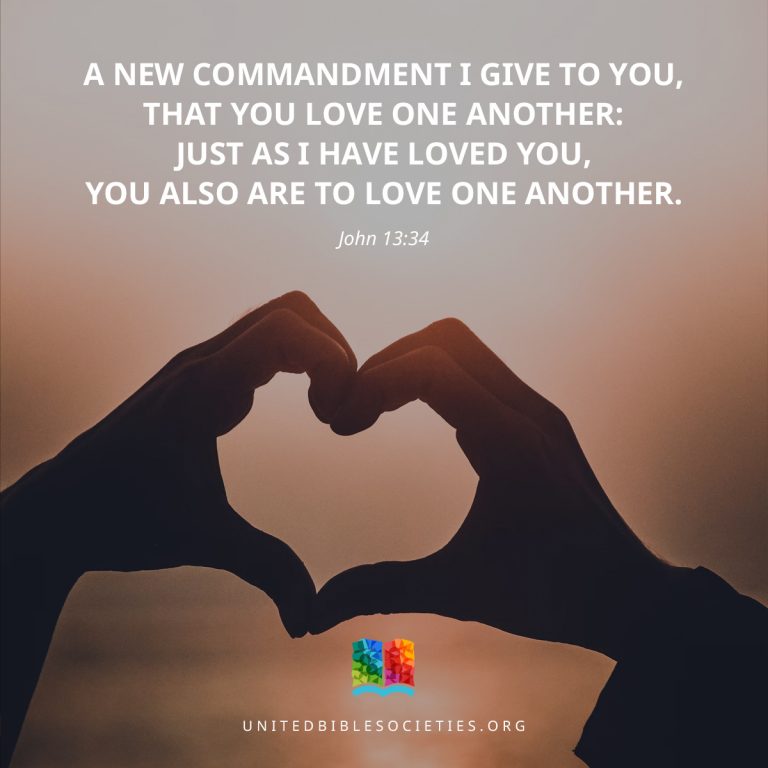The Example of Abraham
1 What shall we say, then, of Abraham, the father of our race? What was his experience? 2 If he was put right with God by the things he did, he would have something to boast about—but not in God's sight. 3 The scripture says, “Abraham believed God, and because of his faith God accepted him as righteous.” 4 A person who works is paid wages, but they are not regarded as a gift; they are something that has been earned. 5 But those who depend on faith, not on deeds, and who believe in the God who declares the guilty to be innocent, it is this faith that God takes into account in order to put them right with himself. 6 This is what David meant when he spoke of the happiness of the person whom God accepts as righteous, apart from anything that person does:
7 “Happy are those whose wrongs are forgiven,
whose sins are pardoned!
8 Happy is the person whose sins the Lord will not keep account of!”
9 Does this happiness that David spoke of belong only to those who are circumcised? No indeed! It belongs also to those who are not circumcised. For we have quoted the scripture, “Abraham believed God, and because of his faith God accepted him as righteous.” 10 When did this take place? Was it before or after Abraham was circumcised? It was before, not after. 11 He was circumcised later, and his circumcision was a sign to show that because of his faith God had accepted him as righteous before he had been circumcised. And so Abraham is the spiritual father of all who believe in God and are accepted as righteous by him, even though they are not circumcised. 12 He is also the father of those who are circumcised, that is, of those who, in addition to being circumcised, also live the same life of faith that our father Abraham lived before he was circumcised.
God's Promise Is Received through Faith
13 When God promised Abraham and his descendants that the world would belong to him, he did so, not because Abraham obeyed the Law, but because he believed and was accepted as righteous by God. 14 For if what God promises is to be given to those who obey the Law, then faith means nothing and God's promise is worthless. 15 The Law brings down God's anger; but where there is no law, there is no disobeying of the law.
16 And so the promise was based on faith, in order that the promise should be guaranteed as God's free gift to all of Abraham's descendants—not just to those who obey the Law, but also to those who believe as Abraham did. For Abraham is the spiritual father of us all; 17 as the scripture says, “I have made you father of many nations.” So the promise is good in the sight of God, in whom Abraham believed—the God who brings the dead to life and whose command brings into being what did not exist. 18 Abraham believed and hoped, even when there was no reason for hoping, and so became “the father of many nations.” Just as the scripture says, “Your descendants will be as many as the stars.” 19 He was then almost one hundred years old; but his faith did not weaken when he thought of his body, which was already practically dead, or of the fact that Sarah could not have children. 20 His faith did not leave him, and he did not doubt God's promise; his faith filled him with power, and he gave praise to God. 21 He was absolutely sure that God would be able to do what he had promised. 22 That is why Abraham, through faith, “was accepted as righteous by God.” 23 The words “he was accepted as righteous” were not written for him alone. 24 They were written also for us who are to be accepted as righteous, who believe in him who raised Jesus our Lord from death. 25 Because of our sins he was given over to die, and he was raised to life in order to put us right with God.
Iburayima la lannoo taamanseeroo
1 Wo to, ǹ si muŋ ne fo m̀ mumu Iburayima la kuwo to, ntolu Yahuudoolu bota meŋ bala. 2 Niŋ Iburayima la kebaaroolu ye a tilindi nuŋ, wo to a ye feŋ soto le, a be kibiri la meŋ na, bari a te kibiri noo la Alla ñaatiliŋo la. 3 Alla la kumoo ye muŋ ne fo? A ko, “Iburayima laata Alla la le, aduŋ a la wo lannoo le naata a ke moo tilindiŋo ti Alla ñaa koto.”
4 Niŋ moo ye dookuwo ke, ì buka a la joo muta ko soorifeŋo, bari ì ka a muta le ko ì taroo. 5 Moo meŋ maŋ jiki a la kebaara betoolu la, bari a laata Alla la, meŋ ka kuu kuruŋ kelaa tilindi, Alla ye wo maarii la lannoo muta a ye tiliŋo le ti. 6 Hani Dawuda ye wo kuu kiliŋo le fo, kabiriŋ a ye moo la barakoo fo, Alla ye meŋ muta moo tilindiŋo ti, kebaara betoolu maŋ kafu daameŋ. A ko:
7 “Seewoo be moo le ye,
yamfa keta meŋ na junuboolu la,
meŋ na hakoo tuutuuta.
8 Seewoo be moo le ye,
Maariyo maŋ meŋ na kuu jawoo muta a fee.”
9 Fo ñiŋ barakoo laahidita le ko, a be sunnariŋolu doroŋ ne ye baŋ, waraŋ fo a be sunnabaloolu fanaa ye le? Ǹ tarata a fo la le ko, Iburayima la lannoo le naata a ke moo tilindiŋo ti Alla ñaatiliŋo la. 10 Ñiŋ keta waati jumaa le? Fo a keta Iburayima la sunnoo koolaa le ti baŋ, waraŋ janniŋ a be sunna la? A maŋ ke a la sunnoo koolaa ti, bari a keta le, janniŋ a be sunna la. 11 Iburayima naata sunnoo soto taamanseeroo niŋ suuteeraŋo ti, meŋ ye a la tiliŋo yitandi, a ye meŋ soto ka bo niŋ a la lannoo la, janniŋ a be sunna la. Wo kamma la, Iburayima keta lannamoolu bee le faamaa ti, Alla ye mennu muta moo tilindiŋo ti, hani ì maŋ sunna. 12 Wo ñaa kiliŋo la, Iburayima mu sunnariŋolu fanaa le faamaa ti, mennu ye wo lannoo muta, Iburayima ye meŋ muta nuŋ, janniŋ a be sunna la.
Iburayima ye laahidoo soto Alla bulu moolu bee ye, mennu laata
13 Laahidoo Alla ye meŋ dii Iburayima niŋ a koomalankoolu la nuŋ ko, duniyaa bee be ke la itolu le taa ti, Alla maŋ ñiŋ laahidoo dii Iburayima la a la Luwaa mutoo kaŋ, bari a ye a dii a la lannoo le kaŋ. 14 Niŋ a ye a tara, duniyaa be ke la Luwaa mutalaalu le taa ti, wo to lannoo maŋ nafaa soto, aduŋ Alla la laahidoo tiñaata le. 15 Kaatu Luwaa ka Alla la kamfaa le samba naŋ, bari luwaa maŋ tara daameŋ, luwaa tiñaa buka tara wo to.
16 Ka Alla la laahidoo soto, a be dendiŋ lannoo le la, fo a si tara looriŋ Alla la hiinoo kaŋ. Ñiŋ soorifeŋo be ke la Iburayima koomalankoolu bee le taa ti, a maŋ ke moolu dammaa ti, mennu ye Luwaa soto, bari a be moolu fanaa ye le, mennu ye Iburayima la lannoo soto. Ate le mu ntolu bee faamaa ti, 17 ko a be safeeriŋ ñaameŋ ko:
“Ŋa i ke nasiyoŋ jamaa le faamaa ti.”
Ñiŋ mu Alla le la kumoo ti, Iburayima laata meŋ na. Ate ka baluwo dii furewolu la le, aduŋ niŋ a ye yaamaroo dii, feŋolu mennu maŋ tara keriŋ nuŋ, ì ka ke le. 18 Iburayima tarata jikiriŋ Alla le la hani waatoo meŋ na, a ye jikilateyi kuwolu doroŋ je. A laata ko, a be ke la nasiyoŋ jamaa le faamaa ti ko Alla la kumoo ye a fo ñaameŋ ko, “I koomoo be siyaa la wo le ñaama.”
19 A maŋ jikilateyi a la lannoo kono, hani a ye a je ñaa-wo-ñaa ko, a balajaatoo korita le, tumoo meŋ na, a siyo be sanji keme ñoŋ. A maŋ jikilateyi, hani a ye a la musoo Saara la jiidibaliyaa niŋ keebaayaa loŋ ñaa-wo-ñaa. 20 A maŋ soŋ, sikoo ye duŋ a sondomoo kono Alla la laahidoo to, bari a ka tu bambandiŋ doroŋ a la lannoo kono, niŋ a ka tenturoo niŋ jayiroo dii Alla la. 21 A tuta dankeneyaariŋ ne ko, Alla be a la laahidoo timmandi noo la le. 22 A la ñiŋ lannoo kamma la, a keta moo tilindiŋo ti Alla ñaatiliŋo la. 23 Ñiŋ kumoo maŋ safee ate dammaa la kuwo to, 24 bari ntolu fanaa. Alla be ntolu fanaa ke la moo tilindiŋolu le ti, kaatu ǹ laata a la le, meŋ ye m̀ Maarii Yeesu wulindi ka bo saayaa kono. 25 A faata le fo ǹ na junuboolu si yamfa, aduŋ a wulindita le ka bo saayaa kono fo ǹ si tiliŋ Alla ñaatiliŋo la.



